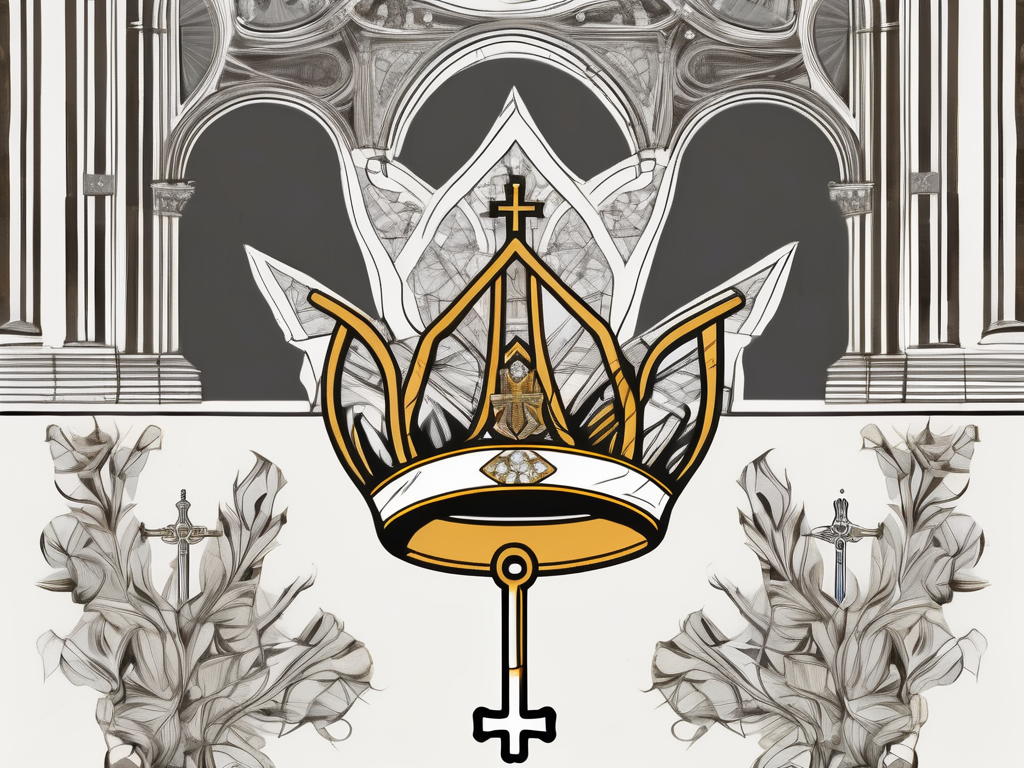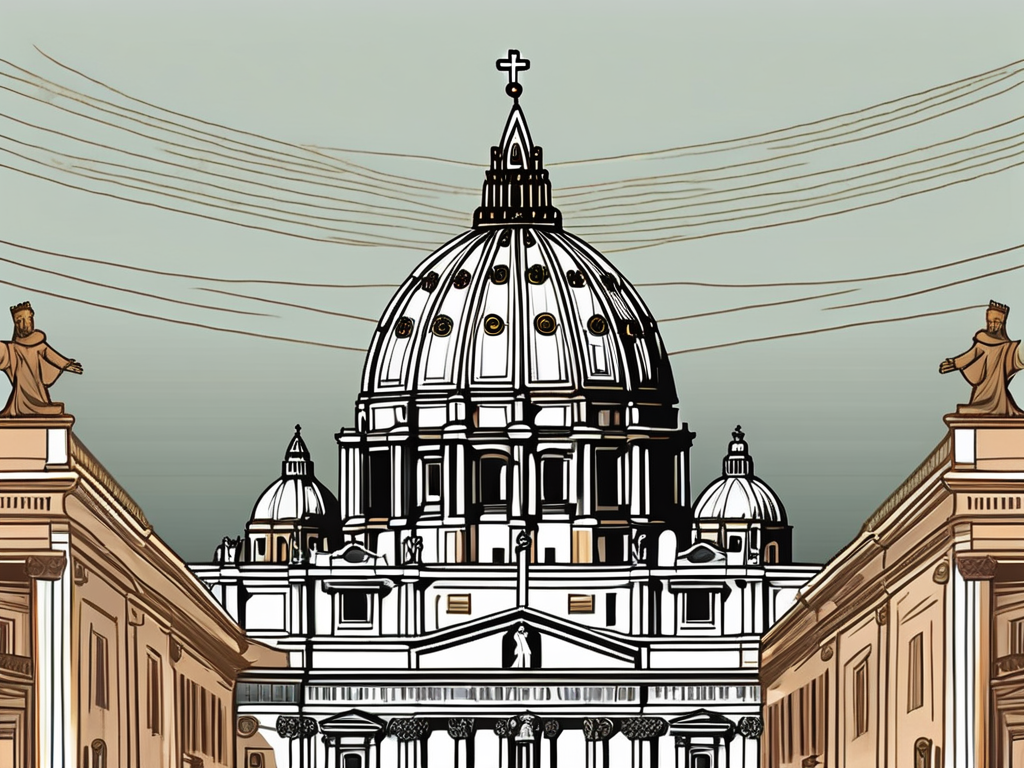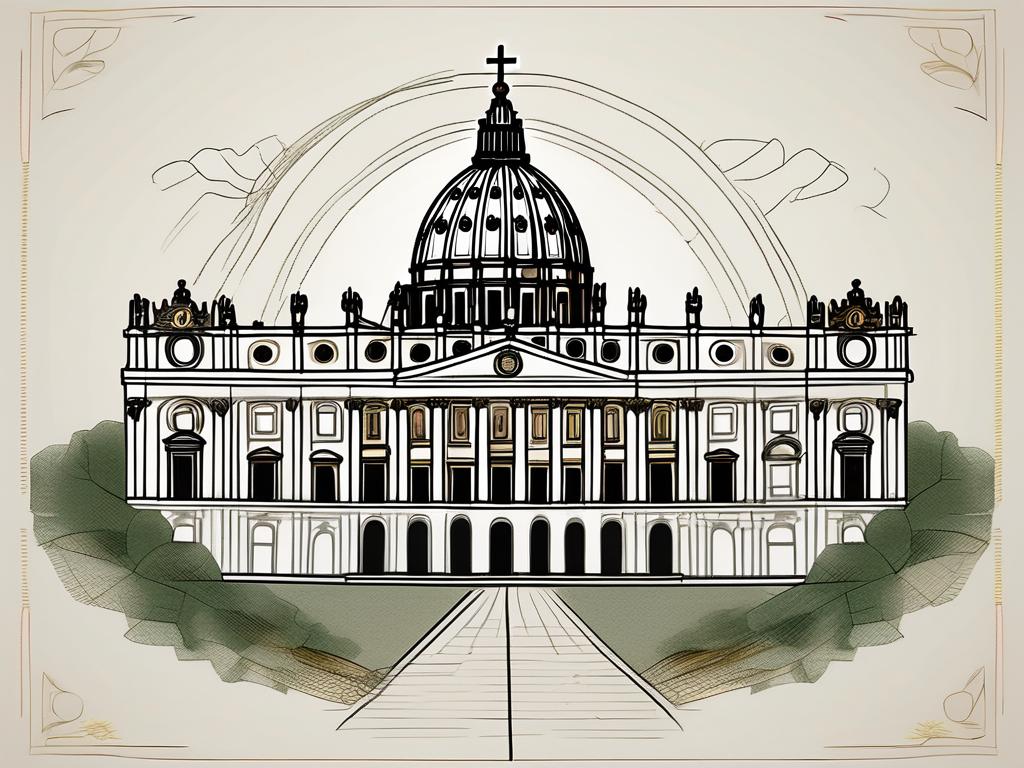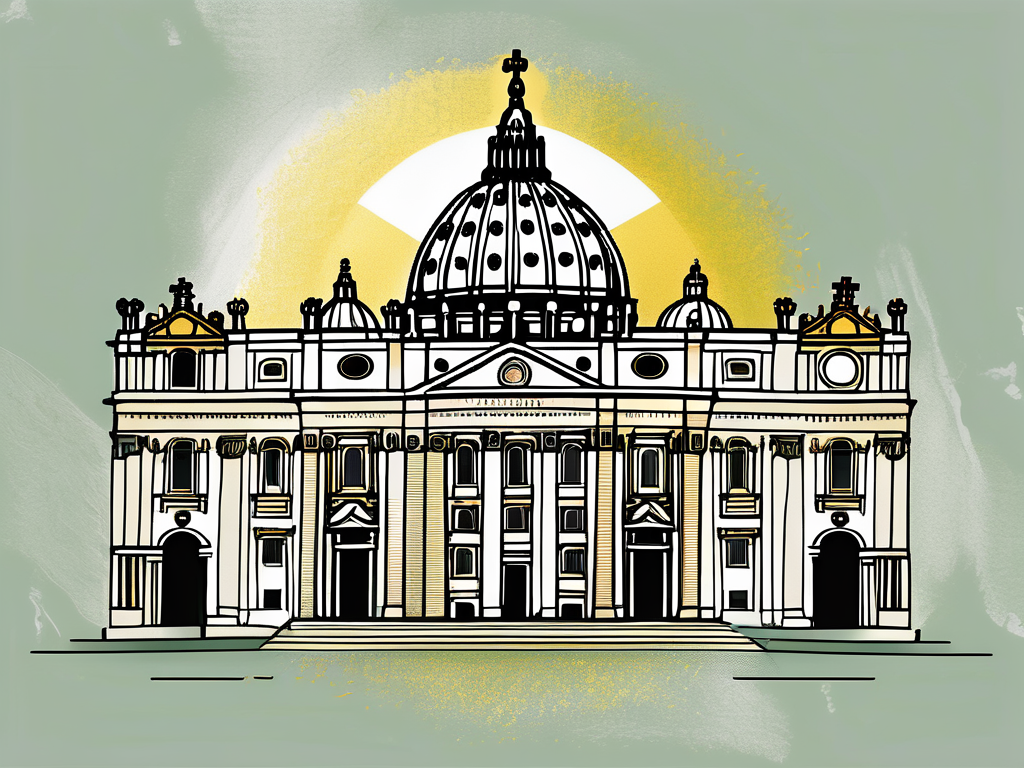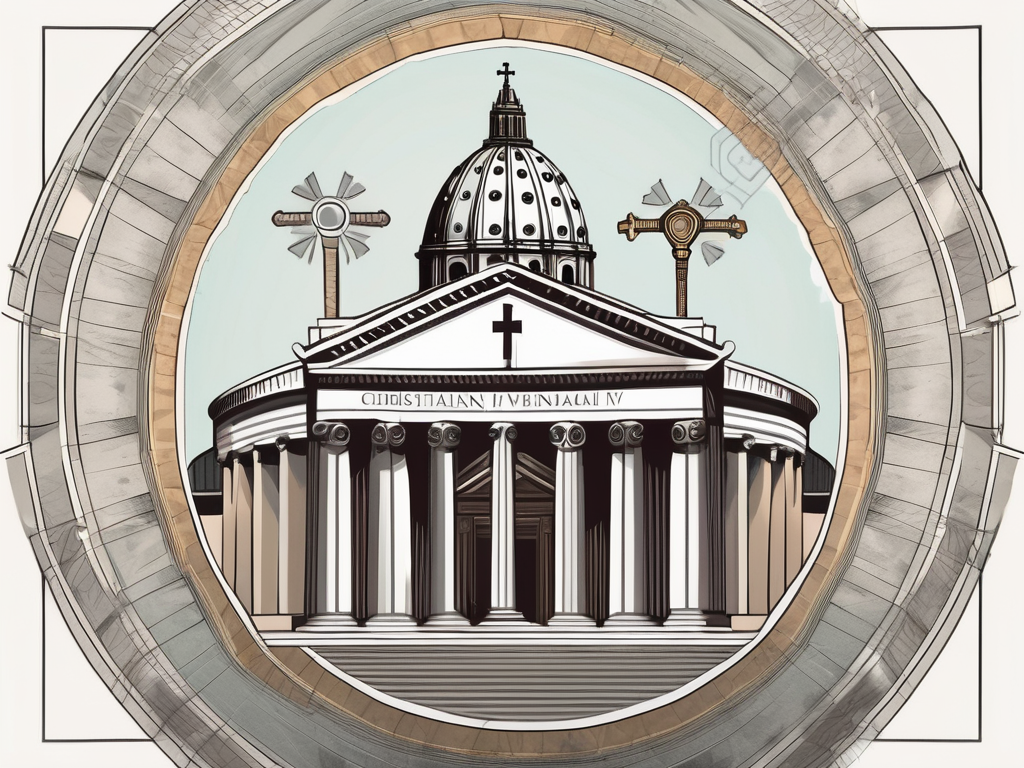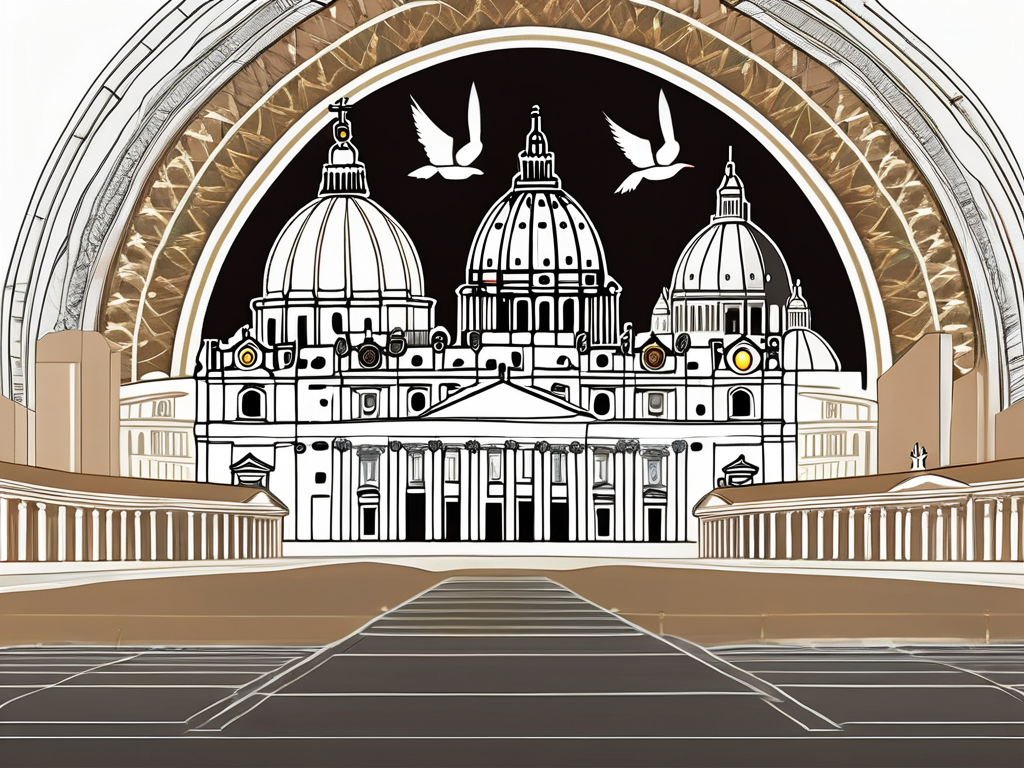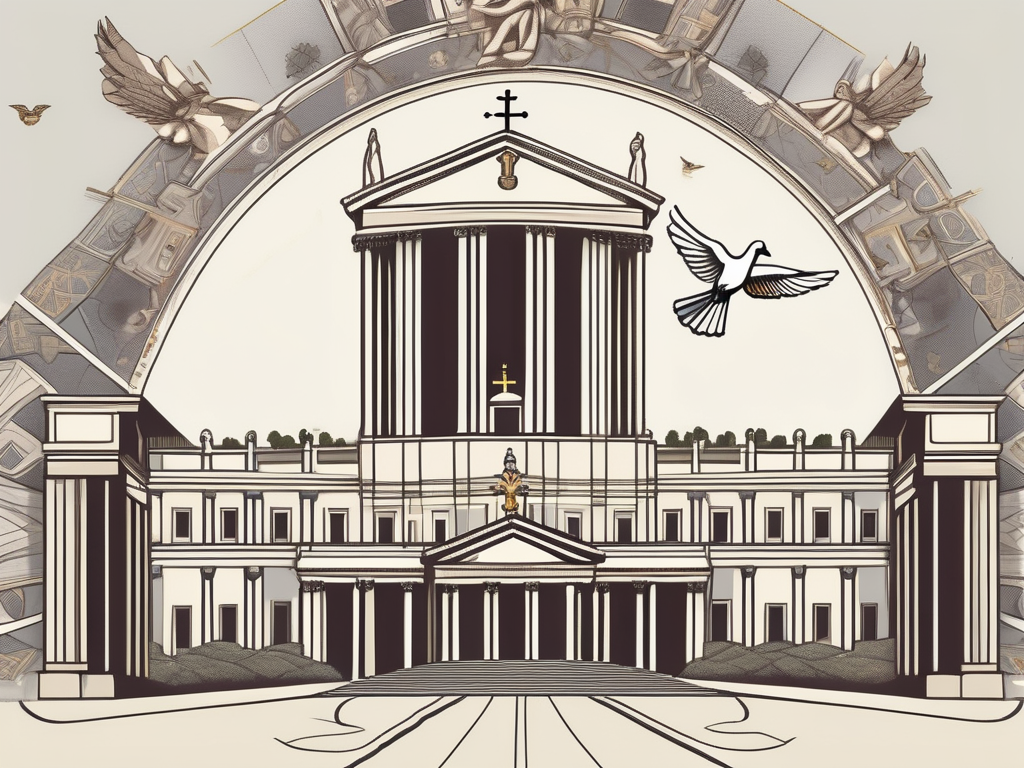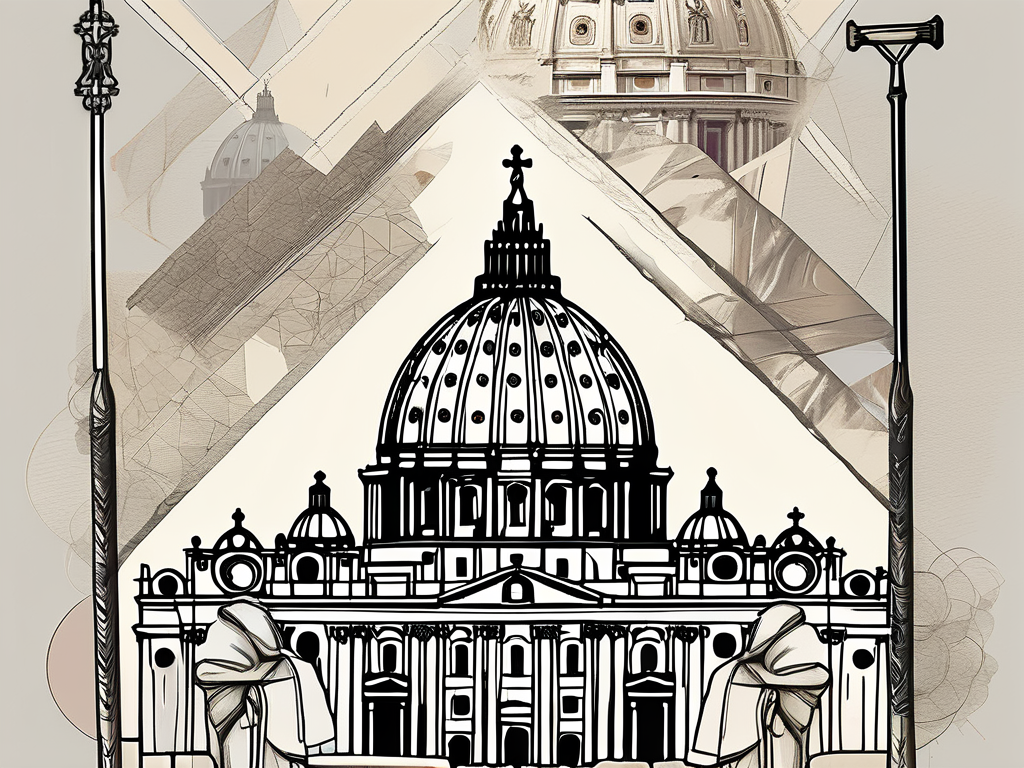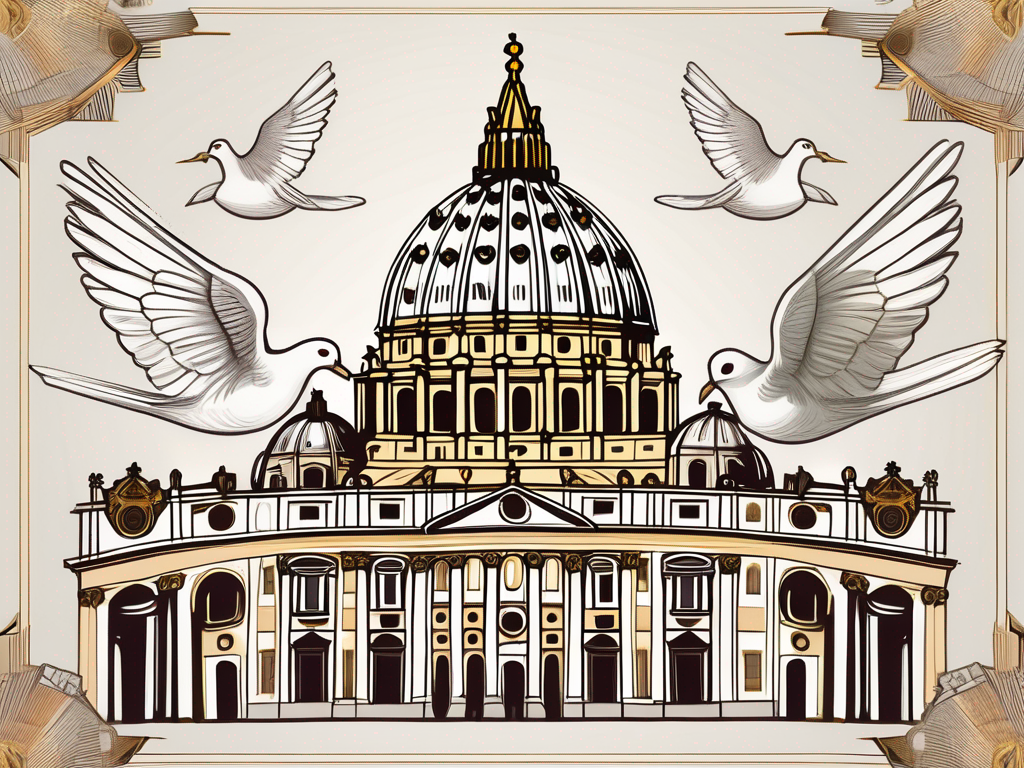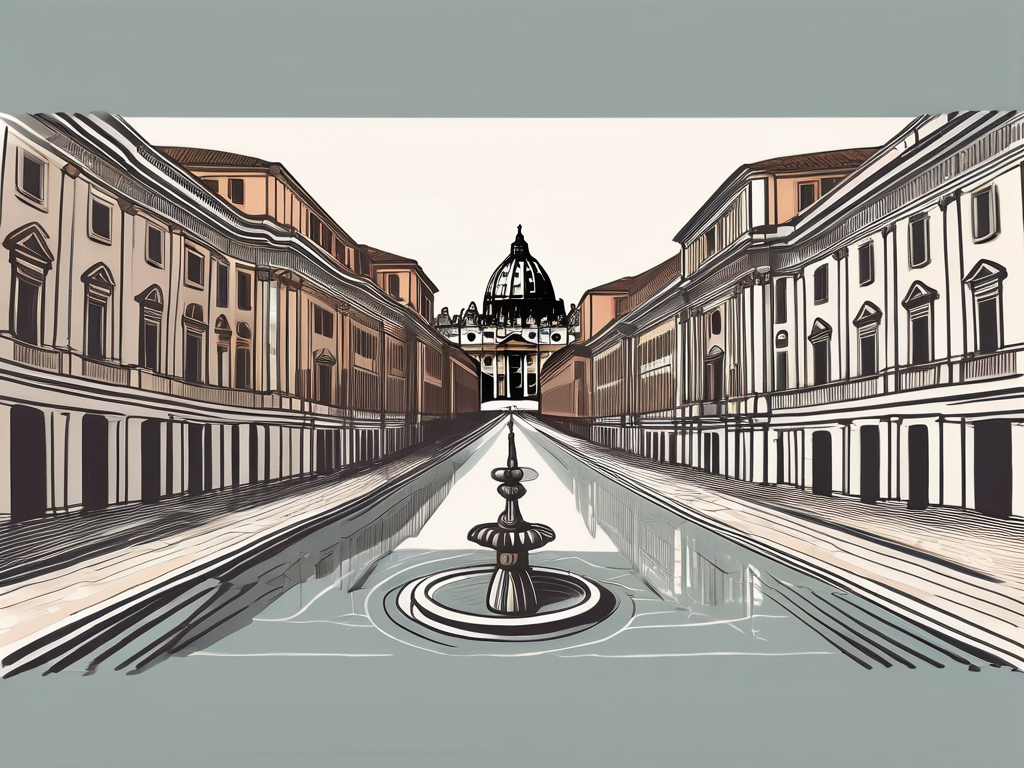Pope Celestine I, also known as Celestine the Great, was a prominent figure in the early history of the Catholic Church. Born in the 4th century, his life and tenure as Pope left a lasting impact on the Church, as well as on subsequent Popes who came after him.
Early Life and Education of Celestine I
Celestine I was born into a humble family in the small village of Campania, Italy. His family was devoutly religious, and from a young age, Celestine was immersed in the teachings and practices of the Catholic faith. This strong foundation would later shape his own spiritual journey.
In his early years, Celestine showed great intellect and a thirst for knowledge. He pursued his education at the renowned School of Rome, where he delved into subjects ranging from theology to philosophy. It was during this time that Celestine’s passion for the Church and his desire to contribute to its growth and development first took root.
Family Background and Childhood
Celestine I’s family was deeply rooted in their local community. His father, a farmer, instilled in him the values of hard work, humility, and compassion. Growing up, Celestine experienced the joys and challenges of rural life, which would shape his understanding of the needs and concerns of everyday people.
Living in a close-knit community, Celestine was surrounded by neighbors who relied on each other for support. He witnessed firsthand the power of community bonds and the importance of lending a helping hand to those in need. These early experiences would later influence his approach to leadership within the Church.
Religious Education and Early Influences
From an early age, Celestine was exposed to the teachings of the Catholic Church. His mother, a devout woman, played a significant role in nurturing his faith. Celestine was often seen attending religious ceremonies and participating in community service activities. These early influences would ultimately guide his path towards the priesthood.
As Celestine grew older, he began to explore the writings of influential theologians and philosophers. He found inspiration in the works of Augustine of Hippo, whose writings on grace and redemption resonated deeply with him. Celestine’s intellectual curiosity and spiritual hunger led him to engage in deep theological discussions with his mentors and peers, further shaping his understanding of the Catholic faith.
During his time at the School of Rome, Celestine also had the opportunity to study under renowned scholars who challenged his thinking and broadened his horizons. He engaged in lively debates on theological matters, expanding his knowledge and sharpening his ability to articulate his beliefs.
It was through these formative years of education and exploration that Celestine I developed a strong foundation of knowledge, faith, and intellectual rigor. Little did he know that these early experiences would prepare him for the significant role he would later play in the history of the Catholic Church.
Ascension to Papacy
Celestine’s journey to the papacy was not an easy one. After years of studying and honing his theological knowledge, he was selected as the Bishop of Rome. This appointment, however, did not come without its challenges.
Before his election as Pope, Celestine had dedicated his life to the pursuit of knowledge and spiritual growth. He spent countless hours poring over ancient texts, engaging in theological debates, and seeking guidance from renowned scholars. His unwavering commitment to his faith and his deep understanding of the Church’s teachings earned him a reputation as a wise and learned man.
Election and Early Challenges
Upon his election as Pope, Celestine faced opposition from various factions within the Church. Some questioned his qualifications and criticized his lack of political experience. Determined to prove his worth, Celestine swiftly addressed these concerns by embracing a collaborative leadership style and seeking counsel from trusted advisors.
Recognizing the importance of building bridges and fostering unity, Celestine embarked on a journey of reconciliation. He reached out to those who had initially opposed his papacy, engaging in open and honest conversations to address their concerns. Through his humility and willingness to listen, he was able to win over many of his detractors and forge strong alliances within the Church.
Key Decisions and Policies
During his papacy, Celestine I made a series of important decisions and implemented key policies that shaped the direction of the Church. He prioritized the promotion of unity among Christians, working tirelessly to bridge divides and foster dialogue between different factions.
One of Celestine’s most significant contributions was his emphasis on the importance of theological education. Recognizing that a well-informed clergy was crucial for the spiritual well-being of the faithful, he established seminaries and promoted the study of the scriptures. Under his guidance, aspiring priests were provided with the necessary tools and resources to deepen their understanding of the Church’s teachings and effectively guide their congregations.
Furthermore, Celestine was a strong advocate for social justice. He recognized the plight of the poor and marginalized, and actively worked towards alleviating their suffering. He established charitable organizations and encouraged the clergy to actively engage in acts of compassion and service. His compassionate leadership inspired countless individuals to follow in his footsteps, dedicating their lives to helping those in need.
Celestine’s papacy was marked by a deep commitment to the spiritual growth of the Church and the well-being of its followers. His unwavering dedication to unity, education, and social justice left an indelible mark on the history of the papacy and continues to inspire generations of clergy and faithful to this day.
Significant Contributions to the Church
Celestine I’s tenure as Pope was marked by numerous contributions to the Church that left a lasting impact on the institution.
During his papacy, Celestine I made significant strides in advancing theological understanding within the Church. Recognizing the importance of intellectual discourse, he actively encouraged debates and discussions among scholars. These intellectual exchanges paved the way for groundbreaking interpretations of religious texts and doctrines, enriching the theological landscape of the Church.
Celestine I’s commitment to theological development ensured that the Church remained relevant and adaptable to the changing times, while still upholding its core beliefs and values. His efforts fostered an environment of intellectual curiosity and exploration, allowing the Church to grow and evolve in its understanding of faith.
Theological Developments Under Celestine I
One of Celestine’s significant contributions was his commitment to advancing theological understanding within the Church. He encouraged debates and discussions among scholars, paving the way for groundbreaking interpretations of religious texts and doctrines.
Through his efforts, Celestine ensured that the Church remained relevant and adaptable to the changing times, while still upholding its core beliefs and values.
Under Celestine I’s leadership, the Church witnessed a flourishing of theological developments. Scholars from all corners of the world flocked to engage in intellectual discourse, exchanging ideas and challenging conventional wisdom. The Pope’s unwavering support for these debates created an atmosphere of intellectual freedom, where scholars felt empowered to question and explore the depths of religious understanding.
As a result, the Church experienced a renaissance of theological thought. New interpretations of scripture emerged, shedding light on previously enigmatic passages and offering fresh perspectives on age-old theological questions. Celestine I’s commitment to theological development not only enriched the Church’s understanding of faith but also strengthened its intellectual foundation.
Diplomatic Efforts and Relations
Celestine I recognized the importance of engaging with other religious and political leaders during his time as Pope. He actively sought to establish diplomatic relations with influential figures from different parts of the world, fostering dialogue and understanding.
Understanding the power of diplomacy, Celestine I embarked on a mission to build bridges between the Church and other religious communities. He engaged in dialogue with leaders of various faiths, seeking common ground and promoting mutual respect. These diplomatic efforts not only enhanced the Church’s global standing but also facilitated interfaith dialogue, fostering a spirit of cooperation and understanding among different religious traditions.
Furthermore, Celestine I’s diplomatic endeavors extended beyond religious boundaries. He recognized the importance of engaging with political leaders to promote peace and resolve conflicts. Through his diplomatic initiatives, the Pope played a pivotal role in mediating disputes and encouraging peaceful resolutions, thereby establishing the Church as a force for peace and stability in a turbulent world.
Celestine I’s commitment to diplomacy and fostering positive relations with other religious and political leaders left an indelible mark on the Church. His efforts not only strengthened the Church’s influence on the global stage but also exemplified the importance of dialogue and understanding in building a more harmonious world.
Controversies and Criticisms
Like any prominent figure, Celestine I faced his share of controversies and criticisms throughout his papacy.
Disputes and Conflicts
One of the main controversies that surrounded Celestine was his approach to handling disputes within the Church. Some accused him of being too lenient, while others criticized him for being too strict in his judgments.
Celestine navigated these challenges with wisdom and an unwavering commitment to justice, seeking to strike a balance between mercy and discipline.
Response to Criticisms
In the face of criticism, Celestine I remained steadfast in his convictions. He responded to his detractors with humility and patience, always open to constructive dialogue and willing to consider different perspectives.
His ability to address criticisms with grace and humility earned him respect from both his supporters and those who initially questioned his leadership.
Death and Succession
After a long and influential papacy, Celestine I’s health began to decline in his later years.
Final Years and Death
Despite his declining health, Celestine continued to fulfill his papal duties to the best of his abilities, tirelessly serving the Church and its faithful.
He passed away peacefully at the age of 81, leaving behind a legacy of faith, humility, and devotion.
Legacy and Influence on Successors
Celestine I’s legacy lived on long after his death, as subsequent Popes drew inspiration from his teachings and actions.
His focus on unity, theological education, and diplomacy set a precedent for future Church leaders, guiding their decision-making processes and shaping the direction of the institution.
In conclusion, the life and legacy of Pope Celestine I remain an important chapter in the history of the Catholic Church. His dedication to the faith, his contributions to theological understanding, and his commitment to promoting unity highlight the impact one individual can have on a global institution.

